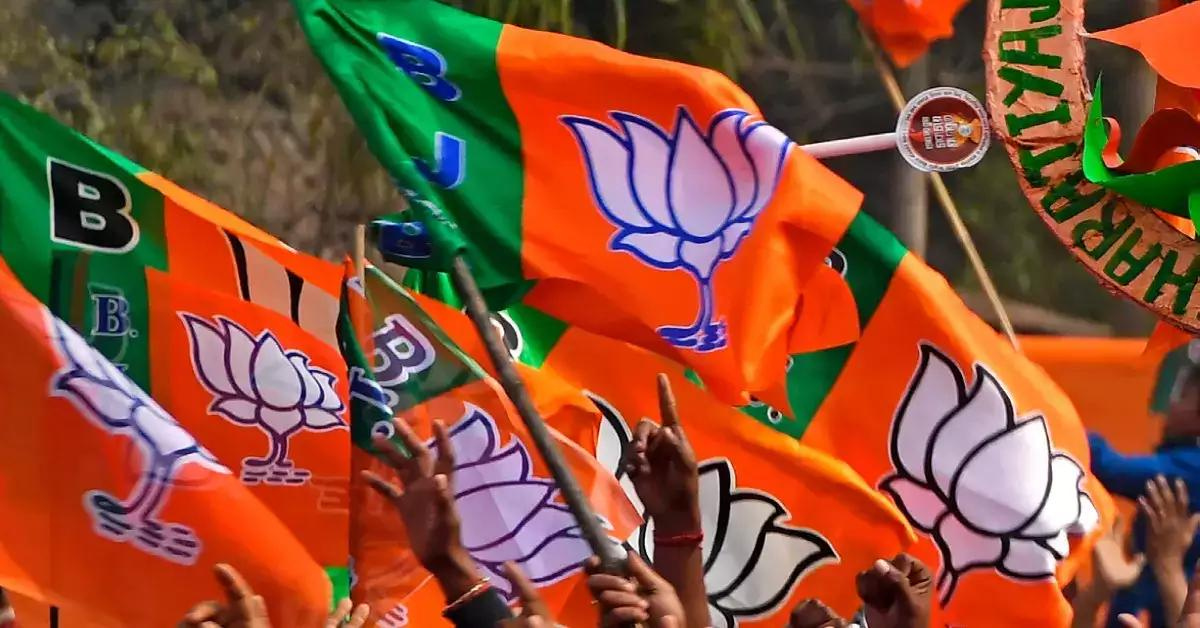BJP Nominates 29 OBC Candidates for Chhattisgarh Assembly Elections
The Bharatiya Janata Party (BJP) has set the stage for a compelling political showdown in the upcoming Chhattisgarh assembly elections. With a strategic focus on the Other Backward Classes (OBC) community, the party has nominated 29 OBC candidates for the 90-member assembly, with the possibility of this number increasing to 32 as the final list is yet to be unveiled.
In the previous 2018 assembly election, the BJP fielded 28 OBC candidates, while the Congress offered tickets to 26 OBC individuals. Chhattisgarh, a state with a significant OBC population of around 40-45%, primarily inhabiting the central plains, has become a battleground for political parties seeking to connect with this substantial voter base.
The BJP’s electoral journey for 2023 commenced with the announcement of its first list on August 17, followed by the second list released recently. The Congress, on the other hand, is expected to release its candidate list in the coming week.
In addition to the OBC candidates, the BJP has also nominated 16 upper-caste candidates, including Thakurs, Brahmins, Agrawals, and a Jain. Out of the 85 candidates declared so far, 29 are reserved for Scheduled Tribes (ST), and 10 for Scheduled Castes (SC).
The BJP’s candidate list includes two former Indian Administrative Service (IAS) officers, OP Choudhary and Neelkanth Tekam, and three doctors, namely Krishnamurti Bandhi, Khilwan Sahu, and Dinesh Lal Jangde.
Among the OBC category candidates, the highest number of tickets were given to Sahus (10 candidates), followed by Kurmi (8), Rajwar (2), Yadav (2), Kalaar (2), and others.
“We are focusing on OBC voters since in the last election, a big chunk of OBC voters voted for the Congress. This time, they are inclined toward us,” a BJP leader explained.
While there are 29 reserved seats for STs, the BJP has nominated 30 ST candidates, including one for a general seat – the Premnagar constituency. The Gond tribe candidates secured the most nominations, with 18 candidates, followed by Kanwar (4), Rathiya Kanwar (2), Bhatra (2), Halba (2), Christian Oraon (2), and Hindu Oraon (1).
Curiously, the BJP has not nominated any Sikh, Sindhi, Punjabi, Gujarati, or Muslim candidates so far.
The list also features three Agrawals, with Amar Agrawal and Brijmohan Agrawal having served as ministers in the BJP government for 15 years. Amar Agrawal lost the Bilaspur seat to Congress in 2018, while Brijmohan retained his Raipur South seat, albeit with a decreased margin.
Sampat Agrawal, the third among the Agrawals, received the ticket from Basna, having contested independently in the 2018 election and recently joined the BJP.
Representing the Gujarat community, actor-turned-politician Anuj Sharma was nominated for the Dharsiwa seat, a change from Devji Bhai Patel, who had held the seat since 2003. This decision, however, has stirred some local dissent.
Other upper-caste candidates include former chief minister Raman Singh, his nephew Vikrant Singh, former ministers Prem Prakash Pandey, Rajesh Munat, Vijay Sharma, and Purandar Mishra.
Dilip Singh Judeo’s youngest son, Prabal Pratap Singh Judeo, and daughter-in-law Sanyogita Judeo have also been nominated by the BJP for the Kota and Chandrapur seats, respectively. This marks Prabal Pratap’s first electoral contest, while Sanyogita is making her second attempt, having lost in 2018.
The Chhattisgarh assembly elections are scheduled to be held on November 7 and 17. The BJP’s OBC-focused candidate list reflects its concerted effort to appeal to this significant voter segment and secure a strong foothold in the state’s political landscape. The question that remains is whether this strategy will find resonance with the OBC voters when the ballots are cast.

